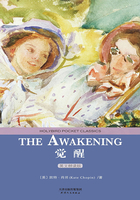That man is born with a desire to obtain happiness,which desire is the primary cause of all his actions,continues through life,and,in popular language,is called self-interest.
That he is also born with the germs of animal propensities,or the desire to sustain,enjoy,and propagate life;and which desires,as they grow and develop themselves,are termed his natural inclinations.
That he is born likewise with faculties which,in their growth,receive,convey,compare,and become conscious of receiving and comparing ideas.
That the ideas so received,conveyed,compared,and understood,constitute human knowledge,or mind,which acquires strength and maturity with the growth of the individual.
That the desire of happiness in man,the germs of his natural inclinations,and the faculties by which he acquires knowledge,are formed unknown to himself in the womb;and whether perfect or imperfect,they are alone the immediate work of the Creator,and over which the infant and future man have no control.
That these inclinations and faculties are not formed exactly alike in any two individuals;hence the diversity of talents,and the varied impressions called liking and disliking which the same external objects make on different persons,and the lesser varieties which exist among men whose characters have been formed apparently under similar circumstances.
That the knowledge which man receives is derived from the objects around him,and chiefly from the example and instruction of his immediate predecessors.
That this knowledge may be limited or extended,erroneous or true;limited,when the individual receives few,and extended when he receives many ideas;erroneous,when those ideas are inconsistent with the facts which exist around him,and true when they are uniformly consistent with them.
That the misery which he experiences,and the happiness which he enjoys,depend on the kind and degree of knowledge which he receives,and on that which is possessed by those around him.
That when the knowledge which he receives is true and unmixed with error,although it be limited,if the community in which he lives possesses the same kind and degree of knowledge,he will enjoy happiness in proportion to the extent of that knowledge.On the contrary,when the opinions which he receives are erroneous,and the opinions possessed by the community in which he resides are equally erroneous,his misery will be in proportion to the extent of those erroneous opinions.
That when the knowledge which man receives shall be extended to its utmost limit,and true without any mixture of error,then he may and will enjoy all the happiness of which his nature will be capable.
That it consequently becomes of the first and highest importance that man should be taught to distinguish truth from error.
That man has no other means of discovering what is false,except by his faculty of reason,or the power of acquiring and comparing the ideas which he receives.
That when this faculty is properly cultivated or trained from infancy,and the child is rationally instructed to retain no impressions or ideas which by his powers of comparing them appear to be inconsistent,then the individual will acquire real knowledge,or those ideas only which will leave an impression of their consistency or truth on all minds which have not been rendered irrational by an opposite procedure.
That the reasoning faculty may be injured and destroyed during its growth,by reiterated impressions being made upon it of notions not derived from realities,and which it therefore cannot compare with the ideas previously received from the objects around it.And when the mind receives these notions which it cannot comprehend,along with those ideas which it is conscious are true and which yet are inconsistent with such notions,then the reasoning faculties become injured,the individual is taught or forced to believe,and not to think or reason,and partial insanity or defective powers of judging ensue.
That all men are thus erroneously trained at present,and hence the inconsistencies and misery of the world.
That the fundamental errors now impressed from infancy on the minds of all men,and from whence all their other errors proceed,are,that they form their own individual characters,and possess merit or demerit for the peculiar notions impressed on the mind during its early growth,before they have acquired strength and experience to judge of or resist the impression of those notions or opinions,which,on investigation,appear contradictions to facts existing around them,and which are therefore false.
That these false notions have ever produced evil and misery in the world;and that they still disseminate them in every direction.
That the sole cause of their existence hitherto has been man's ignorance of human nature:while their consequences have been all the evil and misery,except those of accidents,disease,and death,with which man has been and is afflicted:and that the evil and misery which arise from accidents,disease,and death,are also greatly increased and extended by man's ignorance of himself.
That,in proportion as man's desire of self-happiness,or his self-love,is directed by true knowledge,those actions will abound which are virtuous and beneficial to man;that in proportion as it is influenced by false notions,or the absence of true knowledge,those actions will prevail which generate crimes,from whence arises an endless variety of misery.and,consequently,that every rational means should be now adopted to detect error,and to increase true knowledge among men.
That when these truths are made evident,every individual will necessarily endeavour to promote the happiness of every other individual within his sphere of action;because he must clearly,and without any doubt,comprehend such conduct to be the essence of self-interest,or the true cause of self-happiness.















